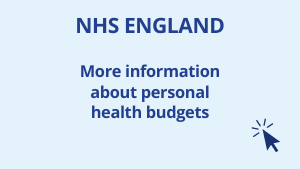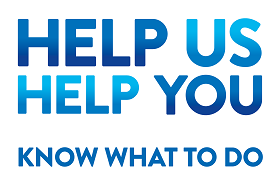
People who access wheelchair services, whose posture and mobility needs impact their wider health and social care needs, have a right to a personal wheelchair budget to support people’s choice of wheelchair. Personal wheelchair budgets are slightly different from other types of PHB, and have been put in place to replace the wheelchair voucher scheme.
People who are referred and meet the eligibility criteria of their local wheelchair service can access a personal wheelchair budget. Anyone who is already registered with the wheelchair service will be eligible when they require a new wheelchair, either through a change in clinical needs or in the condition of their current chair.
You can find out more information and watch videos from some patients who have benefitted from a PWB on the NHS website here.
How can a personal wheelchair budget be organised for me?
Find out below how a personal wheelchair budget is organised and what you can expect. You can also contact the Personal Health Budget Support Service if you have any more questions or need support.
You can also find useful leaflets about PHBs in various formats available to download by clicking the link below.
There are three basic steps to your personal wheelchair budget:
- Understand your health and wellbeing needs
If you are able to access a personal wheelchair budget, your lead health professional should work with you on a personalised assessment, where you are supported to identify the health and wellbeing outcomes you wish to achieve. The Wheelchair Service in Sefton is responsible for the assessment and prescription of wheelchairs, and you can be referred to the service by your lead health professional. - Make a personalised care and support plan
If you choose to have a personal wheelchair budget you will need to have a personalised care and support plan. This captures the health and wellbeing outcomes identified, and may be part of any wider care plans you require for your care, for example an Education, Health and Care (EHC) plan. This is developed by you/your representative and the lead professional within the community and our CCG NHS funded healthcare team nurse assessor. - Organise your money
As soon as your support plan has been approved your personal wheelchair budget will need to be activated - this can be organised in a few different ways:
- Notional budget – this means you choose to use your personal wheelchair budget for NHS commissioned services, and the service purchases and provides the chair. This also offers the option for additional contributions to the personal wheelchair budget to enhance the wheelchair you can access. This additional contribution may come from other agencies such as education, social care, a voluntary or charity organisation, or you can choose to make additional contributions yourself to make up the cost difference if needed. You can find out more about organisations that may be able to provide additional funding for wheelchairs on the Mobility UK website here.
- Third party budget – this means the money is passed on to another independent provider, outside of NHS commissioned services. With a third party budget, you also have the option of additional contributions, as above.
- Traditional third party budget – this means an independent organisation (not you or the NHS) would receive and manage the money for you. This could include provision of a wheelchair as part of a package of support.
- Direct payment – this means we pass on the money directly to you and you take responsibility for arranging the wheelchair support you need, in line with your personalised care and support plan.
Support is available to help you consider these options. Please see below for the contact details of the Personal Health Budget Support Service and other local organisations who can help.
Where can I find out more information?
If you want to know more or you have any questions about personal wheelchair budgets you should contact your lead health professional – your care manager, nurse or GP. You can also contact the Personal Health Budget Support Service if you have any more questions or need support.
You can also find out more from the NHS England website’s ‘frequently asked questions’ about PWBs.
We have also approved a local policy that sets out the principles of how it will implement the delivery of personal health budgets across Sefton. You will find a copy in our policies library.
You can also contact the following local voluntary sector organisations who provide information and support to people with personal wheelchair budgets:











